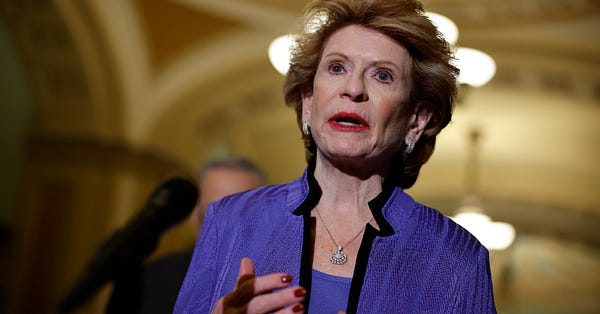A week ago at the Academy Awards, an event took place that you undoubtedly have heard a lot about because it has dominated the news, and understandably so.
I refrained from commenting on it at the time because I felt I had nothing to add to the public discourse. And this is a position, at least about the specifics of what took place, that I continue to hold. But the act itself, and even more so, the reaction to it, has got me thinking in ways I wanted to share with all of you.
When movie star Will Smith strode onto the stage and slapped comedian Chris Rock, after Rock made a joke about Smith’s wife, Jada Pinkett Smith, it was bound to be a huge deal. And when something like that happens, it is a catnip for people to flood online and offer their “hot takes.” That instinct is matched by the cable news shows, the morning talk shows, the late night talk shows, and indeed much of the national (and in this case, global) journalistic establishment.
But as with so much of life, events are complicated; hot takes often prove to be incomplete and misguided. Stark binaries of who is right and who is wrong, good guys and bad guys, offer a tempting filter through which to see the world but tend to be far too simplistic for reality. As the week unfolded and the story still seemed to resonate, I saw many more nuanced reactions from people who had something to say about violence in relationships, the role of race and double standards in Hollywood (and the rest of society), the burden of those suffering from health issues, and many other elements to the story.
If you were to lose all the trappings of celebrity around this particular event and remove it from the global stage on which it transpired, it boils down to two basic components upon which I do feel competent to comment: cruelty (a joke at the expense of someone afflicted with an appearance-altering medical condition), and violence.
Unfortunately, there are a lot of both in the world, and cruelty and violence often go hand in hand. Sometimes, as with the horrors we are witnessing in Ukraine, it is particularly easy to see the two sides of the conflict as representing a battle between good and evil. This is especially true in light of the reports of executions of civilians and other atrocities. The world is rightfully shocked and outraged. However, we should still recognize that war always casts a wide shadow of tragedy.
We don’t know how many Russian soldiers have lost their lives in the fighting, but conservative estimates suggest at least 7,000 and possibly more than double that. These are staggering numbers. There are credible reports that some Russians on the frontlines are poorly led and poorly trained conscripts, that they had no idea what they were being sent to do, and that many are reluctant about their mission. It is the young who invariably have to fight the wars dreamed up by their elders.
Beyond Ukraine, cruelty and violence exist across the world in ways we as a society, and the news media in particular, do not give enough attention. And this flawed prioritization extends beyond the numerous armed conflicts currently causing chaos around the globe. From child poverty, to unsafe working conditions, to unequal educational opportunities, to a host of environmental degradations, to mental health struggles, there is no shortage of problematic social and economic conditions that grind on incessantly but rarely swell to a point where they are trending on Twitter or filling cable news lineups. When they do, it often is because they cross into a category, like politics, that dominates our discourse. For example, it took the fight over funding for the free school lunch program implemented during the pandemic to make child hunger newsworthy:


Our newscycle, fueled by social media and instant alerts, is increasingly characterized by a herd mentality as it stampedes from topic to topic. Often this pattern misses vital longer trends. Something like a deadly storm or the persistence of drought might cause climate change to jump to the top of the queue of trending news topics, but it then tends to fade, although the danger only increases.
In an interconnected world, we can’t afford to just move on. In newsrooms, there is an obvious bias towards what’s “new.” You often hear editors, in turning down a reporter’s pitch, use some form of “we’ve done that story before.” And there is some truth to this. We need to seek out what we don’t yet know, uncover new truths, highlight new voices that need to be heard.
But there is also something to be said for staying on a beat. In a previous journalistic era, when newspapers and television news were more flush with resources and free from corporate consolidation and meddling, a lot more effort was given to beat reporting. This style of journalism allows for a depth of coverage from a reporter with a firm grasp of nuance, context, and sources. It reflects not only a topic's splashy headlines but also the evolution of an ongoing narrative. Most news stories emerge rather than explode out of nowhere. And they move into new chapters, rather than simply ending. Beat reporting acknowledges the reality that life is complicated and interconnected.
Here, perhaps, the journalism community can learn something from the world of entertainment. In a bygone era of television, shows mostly were structured into one-off episodes where the beginning and the resolution of the drama took place within a single hour. Each following week it was onto something new; even if the characters remained the same, the storyline restarted. Think Murder, She Wrote or The Love Boat, for example. Now in the midst of a so-called “golden age of television,” we see series stretching across several years and dozens of episodes. It’s The Sopranos, or Breaking Bad, or any of countless other programs. During the pandemic, Jean and I discovered immersive series from around the world on our streaming services, like A French Village, about a French town occupied by the Nazis during World War II.
What this global renaissance of immersive storytelling suggests is that wide swaths of the public are open to and indeed, captivated by, narratives that are complex and nuanced. If stories are well told, I think the public can embrace these same features in nonfiction as well as fiction. There will always be a place for breaking news, but there should also be plenty of digital real estate allocated to deep dives. I suspect, knowing the Steady community, that many of you subscribe to publications that prioritize comprehensive research and analysis, as well as watch similar fare on television.
Leading the topics that should be covered this way is the attack on our democracy. What could be more gripping or important than the unfolding drama around the attempts to subvert the last election, and by extension, our very form of government? This is a story where the stakes are the continuation of our nation as we know it. The major players in this drama are well known. It is a story that should be near the top of our news every day. It should be what politicians of both parties are asked about. It should be continually contextualized to bring people up to speed. The pressure of the spotlight of ongoing reporting will in turn shape events, because it will not allow those who wish it to disappear to hide in the shadows. A lot of this is happening now, to be sure, thanks to talented and committed reporters. But even so, I worry that the larger narrative is not resonating with the public with enough context and perspective.
To make this kind of reporting successful requires humility on the part of the journalistic enterprise. We should recognize that there are far too few voices being featured in newspapers and on television. Deep dives require added expertise. Too often, in our talk-show approach to news, we ask the same people to opine on almost everything. They jump from assessing public health risks of the next COVID wave to speculating about Ukrainian military strategy in the defense of Mariupol. Reporters can frame questions and share their own insights, but we need to hear from more people who can shed light on the complexities.
This brings me back to the events at the Academy Awards. One of the few elements of society that gets the immersive beat reporting treatment is the entertainment world. Imagine if all the energy, all the column inches, all the television hours that have been committed to analyzing every angle of that unfortunate episode had been given to a broader consideration of cruelty, violence, and the challenges plaguing our world.
I don’t know what the next topic du jour will be. Whatever it is, it will likely get more coverage than it deserves, and then it will probably be quickly supplanted by the next new shiny object. It’s understandable. But we as news reporters, news consumers, and citizens of this nation and the broader world should also realize the larger issues at play. We should find ways to engage, learn, and not lose touch with the threads that will ultimately stitch together the future. We should confront cruelty and violence. The human propensity for change and growth can lead us to a better place — and that is certainly newsworthy.




This deep dive discussion leads me back to campaigning for Hillary Clinton. As a precinct captain in my community, I was privileged to meet her several times and listen to numerous speeches, rallies and question and answer forums. Incredibly, when asked a complex foreign policy question, her answer was long, thorough and without one mispronunciation. Admittedly that was her expertise as Obama’s Sec. of State. She took the time to explain in depth, each question asked. These were university students posing challenging and complex questions; and she never flinched or skirted a hot issue. When Trump began to dominate the political stage, his brief, uninformed and immaterial quips served as his policy answers. When he was elected, and Hillary was pummeled by a segment of society with bizarre accusations, various misogynistic insults and deemed unable to lead, it was then I knew that a much too large segment of our nation didn’t want the deep dive. They wanted (and still do) to be entertained with ongoing crass and superficial melodrama between “them” and “us”. Verbal violence became normalized in the political arena during Trump’s term, and Hillary’s intelligence, immeasurable leadership qualifications and willingness to do the deep dive became the frequent target. Dan, our nation is now filled with pseudo leaders who degrade and minimize intellectualism. Reporters courageous enough to do the tough, deep work are marginalized; even locked out of some state political sessions. I don’t know what it will take to turn this around; public education continues to be dismantled and critical thinking skills are passé. Responding to strong emotion with violence is the trend. At 65 the remainder of my lifetime will be to advocate for post HS education for all, peaceful resolutions to conflict and equal treatment of all precious humans on this earth.
Your essay on what is newsworthy is good. But, you did leave out the elephant in the room. Without mentioning this problem the narrative will always be soft on bringing out the truth. It is a narrative that almost always is shot down by the editor. Its corporate bias. They shall never bite the hand that feeds them. Its appears corporate news is covering for monopolistic industries. Kind of like how fox interviews trump. How about we take the news out of the marketing division? Democracy doesn't have a change as long as greed directs management.